
Kurt Weill
(1900 – 1950, German)
Weill held the ideal of writing music that served a socially useful purpose.
With Bertolt Brecht, he developed productions such as his best-known work Die Dreigroschenoper (The Threepenny Opera), a Marxist critique of capitalism, which included the ballad "Mack the Knife".
* September Song
Alban Berg
(1885 – 1935, Austrian)
H was a member of the Second Viennese School with Arnold Schoenberg and Anton Webern (see below).
* Wozzeck opera
* String Quartet
* Lyric Suite
* Lulu
* Violin Concerto
Arnold Schoenberg
(1874 – 1951, Austrian)
Leader of the Second Viennese School.
Schoenberg's approach, both in terms of harmony and development, is among the major landmarks of 20th-century musical thought.
* Verklärte Nacht
* Gurrelieder
* Chamber Symphony No. 1
* 3 piano pieces
* 5 orchestral pieces
* Pierrot Lunaire
* Moses und Aaron
Anton Webern
(1883 – 1945, Austrian)
A composer and conductor, he was a member of the Second Viennese School.
As a student and significant follower of Arnold Schoenberg, he became one of the best-known exponents of the twelve-tone technique.
* Concerto for Nine Instruments
* Cantata No. 1&2
* String Quartett
* Piano variations
* Variations for Orchestra
(1874 – 1954, American)
He is one of the first American composers of international renown, though his music was largely ignored during his life.
Over time, Ives came to be regarded as an "American original". He combined the American popular and church-music traditions of his youth with European art music, and was among the first composers to engage in experimental music.
* Holidays Symphony
* Central Park in the Dark
* Three Places In New England
* Variations on America
* Sonata No. 2 "Concord"
Percy Grainger
(1882 – 1961)
An Australian-born composer and pianist, Grainger played a prominent role in the revival of interest in British folk music in the early years of the 20th century.
He also made many adaptations of other composers' works. Although much of his work was experimental and unusual, the piece with which he is most generally associated is his piano arrangement of the folk-dance tune "Country Gardens".
* The Warriors
* Handel in the Strand
* A Lincolnshire Posy
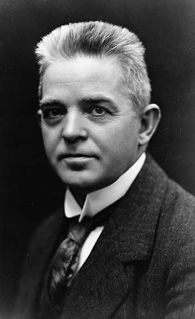 Carl Nielsen
Carl Nielsen [kʰɑːl ˈnelsn̩] (1865 – 1931)
Nielsen is widely recognized as Denmark's greatest composer.
Carl Nielsen is especially admired for his six symphonies, his Wind Quintet and his concertos for violin, flute and clarinet.
In Denmark, his opera Maskarade and a considerable number of his songs have become an integral part of the national heritage.
Zoltán Kodály
[ˈkodaːj ˈzoltaːn] (1882 – 1967)
A Hungarian composer, ethnomusicologist, pedagogue, linguist, and philosopher, he is best known internationally as the creator of the Kodály Method.
* Dances of Galánta
* Concerto for Orchestra
Paul Hindemith - top tracks
(1895 – 1963)
Hindesmith was a German-born American.
His notable compositions include:
* opera Mathis der Maler / Matthias the Painter
* Das Marienleben / The Life of Mary - song cycle for soprano and piano, based on poems by Rainer Maria Rilke.
Béla Bartók
[ˈbeːlɒ ˈbɒrtoːk] (1881 – 1945)
'Bartok was the greatest Hungarian composer since Liszt.
He and Kodaly put Hungary on the international musical map.'
Through his collection and analytical study of folk music,
he was one of the founders of ethnomusicology
-- the study of the music of the world.
* Concerto for Orchestra
* Duke Bluebeard's Castle
 Leoš Janáček
Leoš Janáček[ˈlɛoʃ ˈjanaːt͡ʃɛk] (1854 – 1928)
Considered one of the most important Czech composers, he was inspired by Moravian and all Slavic folk music to create an original, modern musical style.
Jenůfa - often called the "Moravian national opera"
* finale
* 2-hour full version
Janáček's later works are his most celebrated:
* the symphonic poem Sinfonietta,
* the rhapsody Taras Bulba,
* two string quartets, No.1 No.2
* other chamber works and operas
From the House of the Dead opera / Z mrtvého domu
The Makropoulos Affair opera / Věc Makropulos
.jpg/220px-Fritz_Delius_(1907).jpg) Frederick Delius
Frederick Delius (1862 – 1934)
An English composer.
A Village Romeo and Juliet
* a full 2-hour version
 Ferruccio Busoni
Ferruccio Busoni (1866 – 1924)
An Italian composer, pianist, editor, writer, piano and composition teacher, and conductor.
Arlecchino opera
* a 2-minute sample
* a full version
Doktor Faust opera
* a 3-minute sample
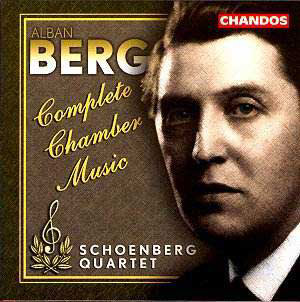
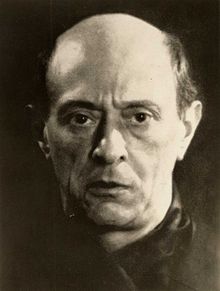




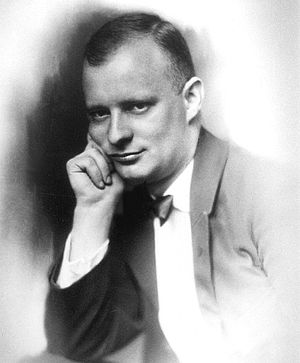
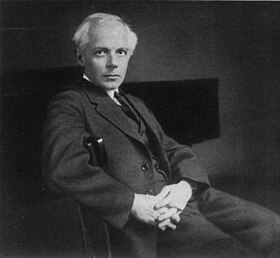
No comments:
Post a Comment